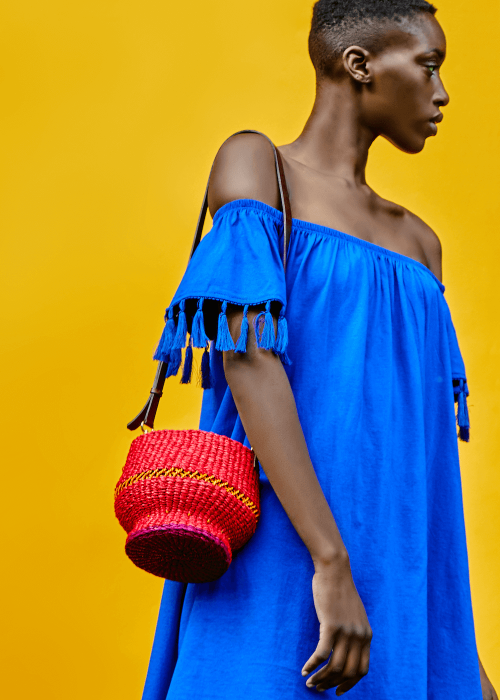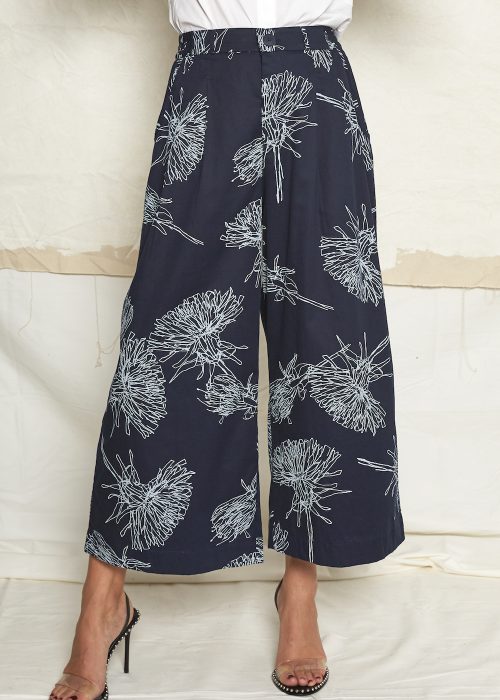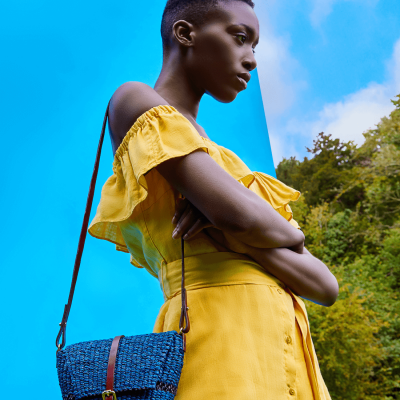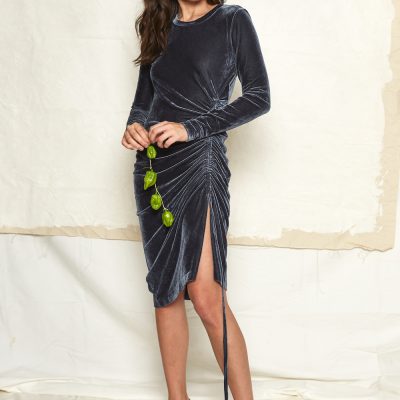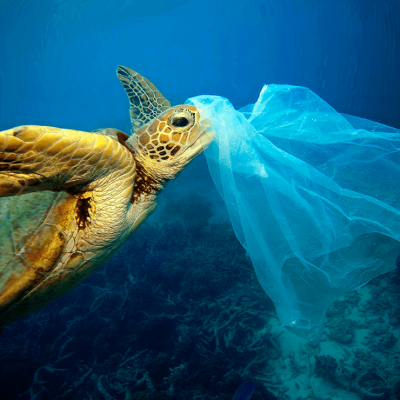
Shop Sustainable
Our brands have answered the question #whomademyclothes, treat and compensate their workers fairly, and strive to minimize their impact on the planet.
Stories
Meet: Mengly Hernandez of LINEA Germania
The artist/designer gives us a sneak peek into her recent trip to Nepal and tells us about the ethics that drive her brand and how it all began.
Five Minutes with Artist Maryam Ego-Aguirre
The photographer tells us about the pain and power of art, danger, the importance of travel, Africa, and what it means to her to be conscious.
Before You Buy: 4 Questions to Ask Yourself to Avoid Waste
How do you buy more advanced pieces that have the everlasting qualities of basics? We’re sharing the shopping rules we live by .
People are talking
JOIN THE MOVEMENT
Get early access to our events, new arrivals and stories and take 10% off your first order.
NOW ON INSTAGRAM
Build a lasting wardrobe that reflects who you are:
Confident, Modern and Conscious.
Conscious Gifts By and For Badass Women
From the Women’s March to the #metoo campaign to Time's Person of the Year, 2017 has been a reminder that women are more determined than ever to be heard and seen—no matter the obstacles. In that spirit, we've decided to shed the light on some ladies we admire. Here are our favorite gifts created by a badass woman we love, perfect for one you love.
MEET: Painter Cassi Namoda
Cassi Namoda is the epitome of the modern creative woman. Independent, intuitive, an avid traveler and learner, she’s a woman of the world and an artist. Born in Maputo, Mozambique...
MEET: Designer Carla Robertson
Her quirky-cool eyewear line has quickly become something of a cult favorite.Carla tells us about her start, slow fashion, color hunting, and finding inspiration in faded socks.
5 Women of Color Changing the Way We See the World
From a Nobel Prize tree planter to a super model, here are 5 minority women we celebrate for making the world better, in their own unique way.
How I Made My Tulum Experience Authentic
Mexico's hippest destination can still be a true personal journey. Here's a travel guide to enjoy it in the most conscious and authentic way.
3 Ugly Truths About Fast Fashion
Who doesn’t own a Zara jacket or an H&M dress? Our closets tend to be filled with mass-produced, ‘fast fashion’ items that we reach for on any occasion. But these clothes often come at a much higher cost than what's on the price tag.
5 Ways to Love Yourself Every Day
Our founder explains the problem with Valentine's Day and shares her tips on how to create abundant, sustained love, whether you're in a relationship or not.
Meet: Nicole Heim of New York Label Cienne
The founder of Cienne worked in corporate design at global retailer Victoria’s Secret for years before finding herself creatively unsatisfied and frustrated with the waste involved in corporate fashion. She tells us about her path, inspiration and ethos.
6 Eco-Friendly Fabrics We've Fallen in Love With
Other than going naked, making the most sustainable choice when it comes to clothing can be complicated. To make it easier, we've put together a guide to eco-friendly fabrics. In Part I, find 6 textiles that we've fallen in love with.
Vyayama: Yogic Values, Style & Performance
A conversation with founder Rachel Bauer and her creative team on the yoga wear brand's origins and inspiration, what makes Vyayama different and the challenges surrounding making sustainability sexy.
Conscious Gifts By and For Badass Women
Women’s March, #metoo campaign, Time's Person of the Year: 2017 is the year we're finally starting to be heard. We're dedicating our holiday gift guide to women who speak up and stand out. Made by a badass woman we love, perfect for one you love.
October: 5 Ways to Spice up Your Life & Style
Here's how you can unleash the secret powers of some common spices, not only to keep your inner flame burning but also to inspire your wardrobe.
5 Films That Will Inspire You to Be More Conscious
It’s that time of the year: holiday cheer, new year resolutions... and of course, “netflix & chill”. We picked 5 outstanding eco and socially conscious movies to add to your Netflix list and watch to start the new year with a more conscious outlook.
Chakra Dressing with FAUBOURG's Priscilla Debar
Our Founder is Ajaie Alaie's muse of the month! Priscilla chats about consciousness, motherhood, entrepreneurship and staying grounded.
4 Ways to Wear Wool Beyond the Sweater
Nothing's cozier than a chunky sweater when temps start dropping. But there’s so much more to wool than the ski lodge. A new wave of designers is reconsidering the possibilities of the cold-weather fabric and changing the way we think about wool.
5 Films That Will Inspire You to Be More Conscious
It’s that time of the year: holiday cheer, new year resolutions... and of course, “netflix & chill”. We picked 5 outstanding eco and socially conscious movies to add to your Netflix list and watch to start the new year with a more conscious outlook.
Meet: Mengly Hernandez of LINEA Germania
The artist/designer gives us a sneak peek into her recent trip to Nepal and tells us about the ethics that drive her brand, the woman who inspires her and how it all began.

